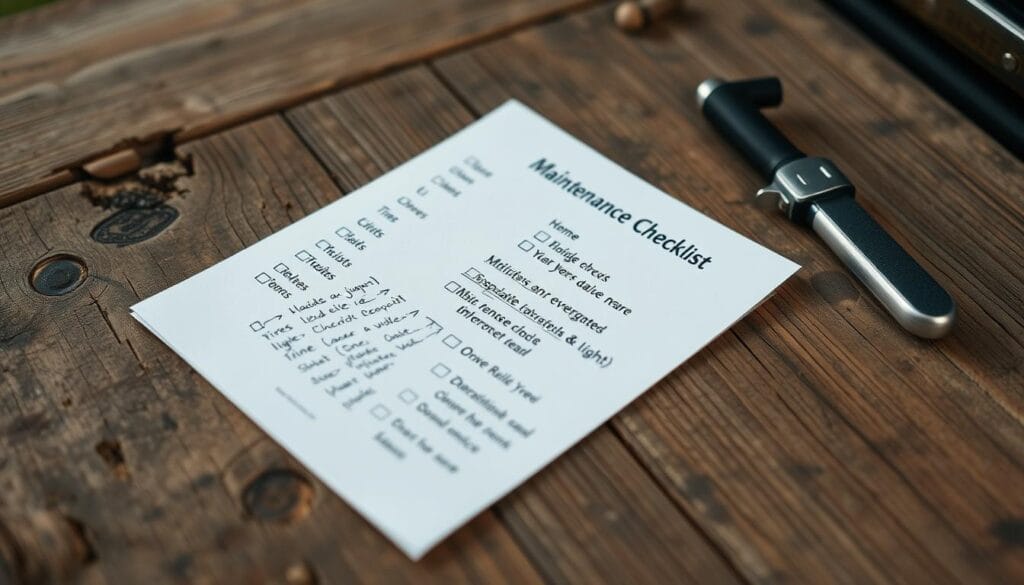Find the Best Road Trip Cars – Compare, Rent, or Buy Today
Summer is here, and the roads are calling. With 70.9 million Americans planning car trips, your adventure is ready. The right car can turn a simple trip into a memorable journey.
Choosing the best car for your trip is important. You might want a fuel-efficient car for saving money or a comfortable one for long trips. Knowing your options is key to a great trip.
Your car is more than a ride; it’s your travel buddy. Whether you need a small car for solo trips or a big SUV for family, there’s something for everyone. Think about fuel, comfort, and reliability when picking your car.
Should you rent or buy? Each choice has its own benefits. Rental prices average $42 a day, and most people rent for four days. This guide will help you choose the best car for your trip, making it unforgettable.
Table of Contents
Understanding Road Trip Vehicle Requirements
Choosing the right vehicle for your road trip is key. It affects your comfort, safety, and overall trip. Knowing what you need helps you pick the best vehicle for your journey.
Essential Features for Long-Distance Travel
For a smooth road trip, some features are must-haves. Look for vehicles with:
- Spacious interiors for passengers and gear
- Comfortable seating for long drives
- Reliable performance on various roads
- Advanced safety features
Space and Comfort Considerations
Cargo space is vital when choosing a road trip vehicle. The Honda CR-V has 39.2 cu ft of space. The Subaru Outback offers 32.5 cu ft. These ensure enough room for your luggage and more.
Performance and Reliability Factors
Performance is important for long trips. Think about fuel efficiency and range. For example, the Toyota Prius gets 54 MPG combined. It’s great for those watching their budget.
Experts say vehicle capacity is crucial for picking the right road trip vehicle.
Your perfect road trip vehicle should offer comfort, space, and good performance. This mix makes your trip enjoyable.
Best Road Trip Cars for Every Budget
Planning your perfect road trip starts with choosing the right vehicle. Whether you’re looking for something affordable or a luxury ride, finding the best car is key. It depends on your needs and budget.
- 2016 Chevrolet Malibu 2.5
- Average used price: $13,160
- Fuel efficiency: 27 mpg city, 37 mpg highway
- Horsepower: 197 hp
- 2017 Honda Civic LX
- Average used price: $15,785
- Fuel efficiency: 30 mpg city, 40 mpg highway
- Great for long trips
For those who want hybrid or electric cars, here are some great choices:
- 2019 Hyundai Sonata 1.6 Turbo
- Average used price: $17,950
- Fuel efficiency: 28 mpg city, 37 mpg highway
- Comfortable for long trips
- 2018 Mazda6 2.5 Signature
- Average used price: $17,913
- Fuel efficiency: 26 mpg city, 35 mpg highway
- Premium road trip experience
“The right car can transform your road trip from a simple journey to an unforgettable adventure.”
When picking your road trip vehicle, think about fuel efficiency, comfort, and reliability. Your perfect road trip car depends on your specific needs, budget, and destination.
Cost Analysis: Renting vs. Using Your Own Vehicle
Planning a road trip means thinking about money. You have to decide between renting a car or using your own. Knowing the costs helps you save money and travel comfortably.
Let’s look at the money side of renting versus driving your own car. Cars that use less fuel are key to saving money on long trips.
Hidden Costs of Vehicle Ownership
Having a car costs more than just buying it. Here are some extra costs:
- Maintenance and oil changes
- Tire replacement
- Potential repair expenses
- Depreciation
Rental Price Breakdown
Rental car prices have changed a lot lately. The average weekly rental can be from $458 to $1,962. This depends on the car type and how long you rent it for.
Depreciation and Mileage Impact
Every mile you drive lowers your car’s value. For example, a 2,571-mile trip could cost about $169 in wear and tear. Cars that use less fuel can help lower these costs.
Pro tip: Renting midweek (Tuesday or Wednesday) often provides the best rental rates.
By looking at your travel needs, you can choose the best option for your road trip. Whether to rent or use your own car depends on your budget and preferences.
Fuel Efficiency Champions for Long Journeys
Planning your next road trip? Choosing fuel-efficient cars can save money and help the environment. Modern travelers have amazing options in hybrid or electric cars. These make long trips both affordable and fun.
Let’s look at some top fuel-efficient vehicles for your next adventure:
- Toyota Prius: Up to 58 mpg combined, perfect for those watching their budget
- Subaru Crosstrek Hybrid: 35 mpg combined with all-wheel drive
- Honda CR-V: Impressive 34 mpg highway
- Nissan Leaf: Electric range of 168 miles on a single charge
When picking your road trip car, keep these tips in mind:
- Maintain proper tire pressure
- Minimize rapid acceleration
- Use cruise control on highways
- Pack light to reduce vehicle weight
“The most sustainable road trip is one that balances comfort, performance, and environmental consciousness.”
Electric and hybrid cars are changing long-distance travel. With more charging spots and better batteries, these cars offer great savings and flexibility.
For those on a budget, a fuel-efficient vehicle can save a lot of money over time. The right car can make your trip eco-friendly without sacrificing comfort or performance.
Modern Safety Features for Highway Travel
Driving long distances needs more than a good car. Modern safety features have changed highway travel, giving drivers unmatched protection and peace of mind. Knowing and using these advanced safety technologies can make your road trip better.
Today’s cars have smart safety features to prevent accidents and keep passengers safe. These technologies work together to reduce driver tiredness and lower crash risks.
Advanced Driver Assistance Systems
Driver assistance technologies have changed highway safety. Key safety features include:
- Adaptive cruise control keeps a safe distance
- Lane departure warning stops you from drifting
- Blind-spot monitoring warns of hidden vehicles
- Traffic sign recognition helps you stay aware
Emergency Response Technologies
Modern cars have important emergency response features. These safety features can spot risks and act fast to protect you.
| Technology | Function | Potential Impact |
|---|---|---|
| Autonomous Emergency Braking | Automatically applies brakes during collision risk | Reduces rear-end collision rates by 28% |
| Pedestrian Detection | Identifies and alerts potential pedestrian collisions | Prevents urban area accidents |
| Automatic Crash Response | Contacts emergency services after severe impact | Rapid medical assistance |
Crash Prevention Features
Car makers focus on safety first. Electronic stability control stops skidding, and advanced airbags adjust to crash severity.
“Safety is not an accident, it’s a choice” – Vehicle Safety Experts
When planning your next road trip, look for cars with lots of safety features. These technologies not only keep you safe but might also lower your insurance costs.
Smart Tips for Vehicle Selection Based on Destination

Choosing the right vehicle for your road trip is all about your destination and what you need. The right vehicle can make your trip amazing, especially when it comes to off-road and towing needs.
Every place you go needs a different kind of vehicle. Here are some important things to think about:
- Mountainous areas need strong off-road vehicles with high ground clearance
- Deserts require cars with great suspension and dust protection
- Coastal trips are better with vehicles that can tow water sports gear well
- City trips might be best with small, fuel-efficient cars
When looking at vehicles, keep these key points in mind:
- Make sure your vehicle can handle rough terrain with its ground clearance
- Check if it can tow trailers or boats if you need to
- Think about fuel efficiency for long trips
- Look at cargo space for all your gear
“The right vehicle turns a good road trip into an amazing adventure.” – Travel Experts
In tough places like national parks or remote areas, renting an SUV is a good idea. The Nissan Armada can tow up to 8,500 pounds, and the Ford Ranger Raptor has 405 horsepower. These vehicles are great for different terrains.
Your vehicle is more than just a way to get from point A to point B. It’s your travel buddy. Pick the right one for a trip you’ll always remember.
Technology and Entertainment Features for Road Trips
Road trips are more than just travel. Today’s cars have top-notch infotainment systems. These systems make your trip fun, safe, and connected.
Latest Infotainment Systems
Modern infotainment systems are a big deal for road trip fans. Ford SYNC® 4 is a standout, with easy phone linking and traffic info. With 73% of travelers needing navigation, these systems are key for long trips.
- Real-time navigation and traffic updates
- Smartphone connectivity
- Voice-activated controls
- Integrated entertainment options
Connectivity Options
Staying connected on the road is easy now. Cars offer many ways to keep devices charged and connected. A big 58% of travelers value phone connectivity for calls and maps.
| Connectivity Feature | Percentage of Users |
|---|---|
| Multiple USB Ports | 51% |
| In-Car Wi-Fi Hotspots | 26% |
| Bluetooth Connectivity | 75% |
Passenger Entertainment Solutions
Long drives can be tough, especially for backseat riders. Innovative entertainment solutions make trips better. About 20% of travelers say rear entertainment is crucial for fun.
- Rear-seat displays
- Streaming capabilities
- Premium sound systems (valued by 35% of travelers)
- Wireless device charging
Choosing cars with advanced infotainment systems makes trips more fun, safe, and connected.
Maintenance Considerations for Long-Distance Travel

Getting your car ready for a long trip needs a lot of attention. Most cars on US roads are over 12 years old. So, making sure your car is in top shape is key for a safe and comfy trip.
Before you start your journey, do a full check-up on your vehicle. This will help avoid any surprises on the road. Here’s a list of important things to check:
- Tire Inspection
- Check tire pressure and tread depth
- Use the penny test to assess tire wear
- Rotate tires for even wear
- Fluid Levels
- Check engine oil (replace if dark or dirty)
- Verify coolant levels
- Inspect brake and transmission fluids
- Critical Systems Check
- Test battery performance
- Examine brake pads and rotors
- Verify all lights are functioning
Pro tip: Always carry an emergency kit. It should have jumper cables, a tire repair kit, and a portable air compressor. These can really help in tough situations.
Doing preventive maintenance can save you money and make your trip better. A well-kept car means you’ll have a reliable ride. Plus, you’ll enjoy comfortable seating and peace of mind on your journey.
Remember, a little preparation goes a long way in preventing roadside emergencies.
Insurance and Coverage Options for Road Trips
Planning a road trip is more than just mapping routes and packing. It’s also about knowing your insurance coverage. This is key for a stress-free trip. Different insurance options can help avoid unexpected costs and give you peace of mind.
Your personal auto insurance usually covers you in the U.S. and Canada. Safety features and insurance vary based on your policy and where you are.
Personal Auto Insurance Coverage
Before your road trip, check your auto insurance policy. Look at:
- Coverage limits in different states
- Rental car protection
- Roadside assistance options
- Medical expense coverage
Rental Car Insurance Alternatives
Rental car insurance can cost $30 to $61 a day. Some credit cards offer free safety features and coverage. This can save you money.
Rental insurance options include:
- Loss Damage Waiver (LDW)
- Supplemental Liability Coverage (SLC)
- Personal Accident Insurance (PAI)
- Personal Effects Coverage (PEC)
Additional Protection Plans
For long trips or international travel, think about special insurance. For example, driving in Mexico needs a separate policy. U.S. auto insurance doesn’t cover international travel.
Pro tip: Always read the fine print and understand your policy’s details before your road trip.
Conclusion
Choosing the right car can make your road trip amazing. The best cars for road trips offer comfort, reliability, and performance. They should fit your travel needs well.
Look at cars like the Subaru Outback for its 33 MPG highway efficiency. Or the Honda CR-V for its fuel economy and cargo space. Each car has its own strengths for your journey.
The best car for you isn’t just about specs. It’s about matching your car to your travel style. Whether you need space, performance, or something budget-friendly, the right choice is out there.
Take your time to research and test drive cars. Understand what you need for your road trip. This way, you’ll find a car that makes your trip better.
By thinking about these things, you’ll find a car that’s perfect for you. It will make your trip memorable. Your ideal road trip car is out there, waiting to make your journey special.




